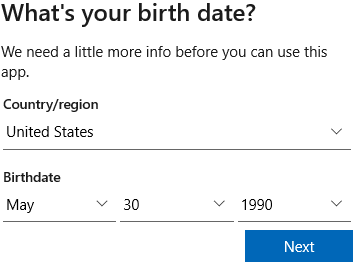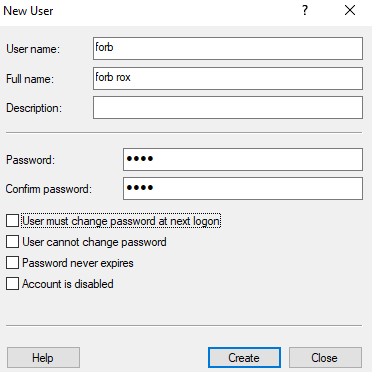Ever wondered if you could set up Windows 10 using a Windows 10 local account? Can you use a Windows 10 local account or a non-Microsoft account when setting up your Windows 10 for the first time? Read on till the last, and we’ll answer all such questions –
Several of us are not comfortable with setting up a Windows 10 account using the Microsoft account. Sadly, if you wish to gain access to the privileges such as being able to sync settings online, download apps from the App Store and get your online content on Apps automatically, you will need a Microsoft account.
Ways To Create Local Windows 10 Account (2022 Edition)
Every local user will have their desktop settings, separate files, and even browser favorites. If you are creating a local user account of Windows 10 for someone who doesn’t have a Microsoft account in the first place, here are some of the ways it can be done –
1. Using Settings To Create A Windows 10 Local Account
- Open Settings by pressing Windows+X keys and then selecting Settings
- Scroll down and click on Accounts
- Click on Family & other users
- From the options given look for Other users and click on the “+” sign, next to Add someone else to this PC
- In the window that opens, click on I don’t have this person’s sign-in information which shall be highlighted in blue color
- You can enter any email ID, for instance, I shall be using a Gmail address and click on the Next button

- You will now be required to enter a new password. It doesn’t have to be the same as your existing Gmail password, but make sure it is strong. It is also advisable that you don’t use the same password as your Gmail account.

- Enter your details and birthdate, and click on Next

- A code will now be sent to your mentioned Gmail account which you will have to enter and click Next.
You might want to read: How To View Activity History On Windows 10 PC
2. Creating A Non- Microsoft Account Using Netplwiz
- Open the run command on your computer by pressing Windows + R keys
- Type netplwiz

- A User Accounts window will now pop up on the screen
- Click on Add option that you will see just above the Password for admin
- Now, you will get a How will this person sign-in window. Click on Sign in without a Microsoft account (not recommended) and click Next
- Once the Add a user button appears, click on the Local Account button

- Enter your details which include your username and password and click on Next

- Click On Next and press Finish, and that’s it, the local account will be created

If you want to remove the local account, the process is simple. All you have to do is click on the Remove button.
3. Setting Up A New PC With A Windows 10 Local Account
If you are a Windows 10 Home user, after the Windows 10 May 2019 update, version 1903, you might not be visibly able to create a local account when setting up Windows 10 for the first time. But, there’s a workaround for this too –
- Disconnect your Windows laptop or PC from the internet, from Wi-Fi, or even ethernet cable
- Now, try to create a Microsoft account following which you will receive a Something went wrong message
- Click the Skip option.
- You should now be able to create a local account on Windows 10
4. Create A Local Account On Windows 10 Using Computer Management

Another way of creating a Windows 10 local account is to use the computer management app.
- Start by typing computer management in the search bar next to the Windows icon and click on Open
- On the left-hand side click on Local Users and Groups under the System Tools
- Now, you will see two options in the middle pane. Right-click on the Users option and click on New User
- Enter the User name, Full name, Description
Do You Know Any Other Way To Create Windows 10 Local Account?
We hope that we have helped you. In our opinion, if you create a Windows 10 local account, you will be able to have a personal and safer space to work on. Do let us know which of the above methods has worked for you. For more such technology-filled content, keep reading Systweak blogs. Follow us on social media – Facebook and YouTube.
MUST READ:



 Subscribe Now & Never Miss The Latest Tech Updates!
Subscribe Now & Never Miss The Latest Tech Updates!